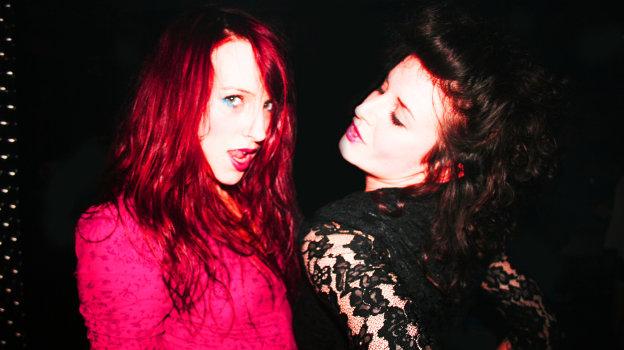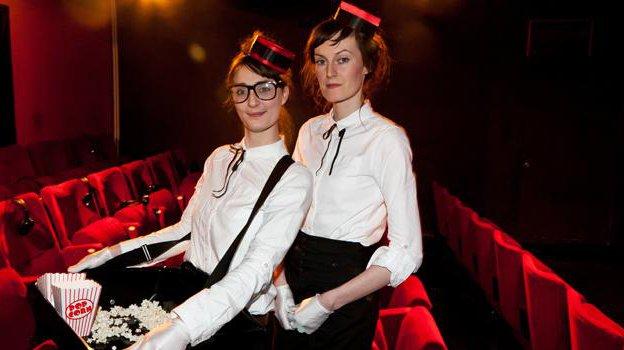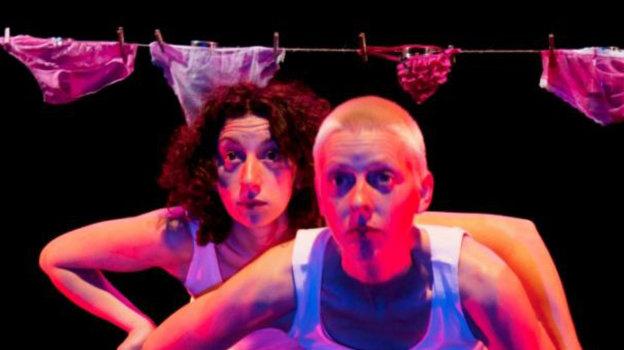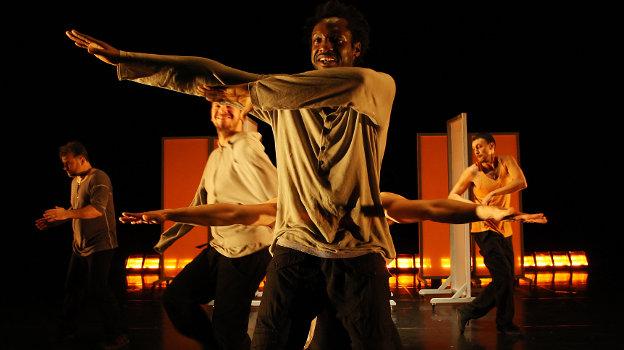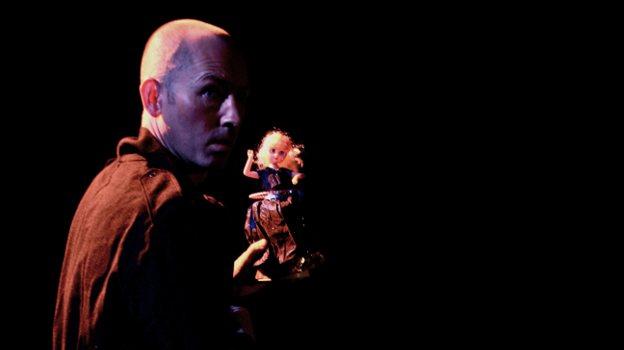Scary Gorgeous revolves around the themes of sex, pornography, relationships and the need to be popular. We follow two narrative strands: a young couple whose relationship is based around their sexual urges and contemplations of love, and a passive aggressive friendship where two girls (Abbi and Helen) constantly challenge one another’s morals and identity.
Rash Dash really throw everything in their artistic arsenal into their shows – song, dance and a live band are all combined here into a frenzied hour. Amid all these theatrical devices the real heart of the performance is when we see these two young artists (in character) slow down and just talk to us about their personal experiences of love and sex, which is far more engaging than the disjointed mix of live music and dance offered elsewhere.
I am unsure who this show’s target audience is – one would assume adults with its time slot and use of language, but with the content, especially the scenes that tackle themes of sex and pornography, the duo seem to have gone to great lengths to tone it down. The pair could have taken a more provocative approach considering the content, which may have pleased the hard-hitting contemporary crowd a lot more.
Rash Dash handle the dialogue between characters incredibly well and the honesty in their feelings really comes across without preaching. But the live band seemed out of place for a lot of the production and were unable to gel with the performance as a whole. The dance sequences, also, were unable to breathe due to a lack of space, and the need to continue each narrative strand held the performers back from really exploring the movement’s relationship to the production’s content.
Rash Dash have an interesting approach to performance, and putting aside some of the content and choices there are times here where they succeed in bringing a fresh and honest performance to life.

